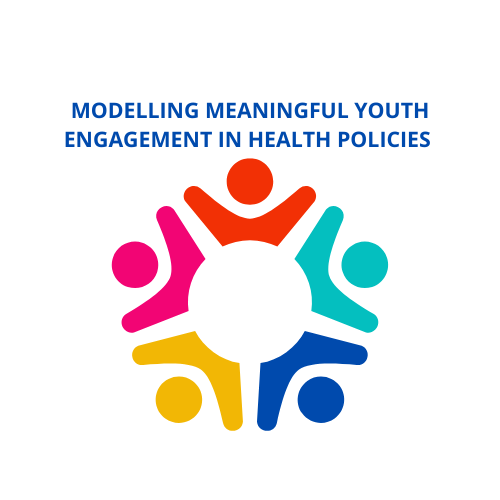Majority of Kenya’s population seeking and providing health services are the youth. Currently, Kenya has a population of 54million and is experiencing a significant youth bulge; with a median age of 20 i.e., 19.9 for men and 20.1 for women. Almost three quarters of the population is under the age of 30 years.[1] This poses a myriad of challenges in terms of access to healthcare services, as the youth bear the burden the heaviest when they fall ill. Medical personnel and medical facilities are sometimes not affordable and sufficient to address the health needs of the young population. They also face the tragedy of not able to access youth-friendly services that they need even when they can access the healthcare services’ they need compromising outcomes of care.
The place of the youth in healthcare discourse is blurry. This begs the question; to what extent are they being involved in decision making processes i.e., program design, implementation, monitoring and evaluation and policy dialogues? Such are the questions that need to be asked and answered to ensure that health policies are created by the youth and for the benefit of youth. This is not only because of the substantial need from this age group but also driven by the fact they constitute a great proportion of the healthcare workforce hence need to have them actively & meaningfully engaged.
The advantage of getting the youth engaged in policy dialogues and health programs is to maximise their potential for their health and wellbeing. The youth are generally innovative and creative and this could revolutionise the healthcare delivery & policy space. It is paramount that youth be given a voice and a platform to air out their lived experiences, since they can best articulate the challenges that they face and provide solutions to them. Effective youth engagement equally sheds light on the matters that are otherwise overlooked or ignored therefore creating inclusive (representative of ethnicity, marginalised groups, youth with disabilities etc.) policies.
The Competency Based Curriculum (CBC) from an education perspective is envisioned to provide appropriate skills to enhance self-employment. However, there’s need to move beyond just basic education to actually engaging youth through hands-on skills. Putting the youth at the forefront of policy conversations, programs and initiatives offer them an opportunity to shape the future optimally for their growth and sustainably. These are invaluable skills that can be reproduced across the board (both formal and informal sectors) and put into practise for professional development. It is paramount that government and youth led organisations invest in training, mentorship and capacity building for the youth. Consequently, this partly solves the issue of youth unemployment which is a menace in the country. Some avenues for these include through fellowship opportunities, youth-led and youth-facilitated design workshops, idea-labs and policy discussions to inform market trends and regulations.
Meaningful youth engagement means youth are well informed about their health, wellbeing and their rights. In this age of social media, there’s a lot of misinformation and disinformation. Being informed means they make sound decisions about their health and they communicate the same to their peers. Health literacy breaks societal norms and myths around health and reinforces proven medical facts.
The evidence and case for meaningful youth engagement in health policy agenda for the betterment of our health systems is glaring. A government with policies that are inclusive of the vast majority of the population guarantees a healthy population and strengthens its economy. This builds a case for the economic imperative for good health and socio-economic development.
To model some of these best practices, through the Ryculture YouTH Voices Network, we will be hosting the 2nd Annual YouTH Voices Summit from 1st – 3rd December 2022 in line with the WHO Health System Pillars focused on promoting intergeneration dialogue towards the realization of Universal Healthcare Coverage (UHC). We are committed to walking the talk and model a new future as we integrate the 4C’s for a better future i.e., creativity, collaboration, critical thinking and communication (effective). We urge you to join us on this course as we envision and a design a healthy future for all.
[1] Kenya Population 2022 (Live): https://worldpopulationreview.com/countries/kenya-population
Article written by Marion Otieno, Programs Assistant Intern, Ryculture Health and Social Innovation

